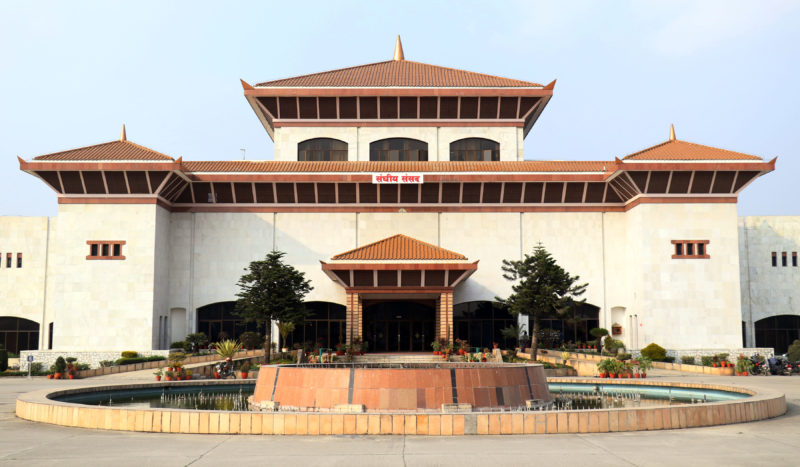House session unlikely before December-end
Kathmandu, November 14
The government is likely to summon the winter session of Parliament only around the last week of December or the first week of January, contrary to the speculation that it could summon the winter session immediately after Chhath festival.
Sources in the Parliament Secretariat said the government’s lack of preparation, particularly its failure to get all the necessary bills ready, was the main reason why it wanted more time to summon the Parliament session. A source in the Parliament Secretariat said the government would summon the new session only around the last week of December or the first week of January.
When asked the reason for the delay, Minister of Law, Justice and Parliamentary Affairs Bhanubhakta Dhakal said the government was drafting the bills that would be discussed in the new session of the Parliament. All processes will be completed on time, he added.
According to a Parliament Secretariat source, out of 339 laws that need to be amended or removed by March 5 to ensure conformity with the new constitution, the government had amended only 194 laws so far. “The government should have registered more bills by now,” the source said, adding that if laws that contradicted the new constitution were not amended by March 5, they could complicate the process of governance.
In the winter session, the Lower House will have to pass nine bills that are under its consideration.
Under-secretary of Parliament Secretariat Adhiraj Rai said bills related to auditing, pension, payment and reimbursement and the bill related to integration and amendment of insurance laws were in the Finance Committee of the House of Representatives.
Meanwhile, national medical education bill is being debated in the Education Committee of the HoR while citizenship bill is being debated in the State Affairs and Good Governance Committee of the Lower House.
The Lower House must also initiate the process on three bills - the bills related to administrative court and prohibition of international trade of endangered flora and fauna, besides the bill to amend civil and criminal code — that were sent by the Upper House.
Rai said the House could take 15-20 days to pass a bill if regular discussions were held without suspending the House Rules. In the budget session of the Parliament, the upper and lower chambers of the Parliament adopted fast-track process by suspending parliamentary rules to pass the bills related to the enjoyment of fundamental rights within three years from the date of promulgation of the constitution.






